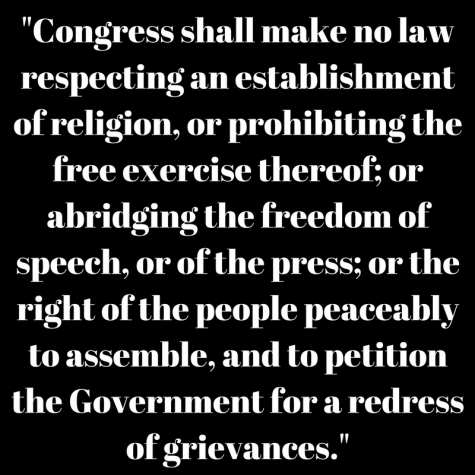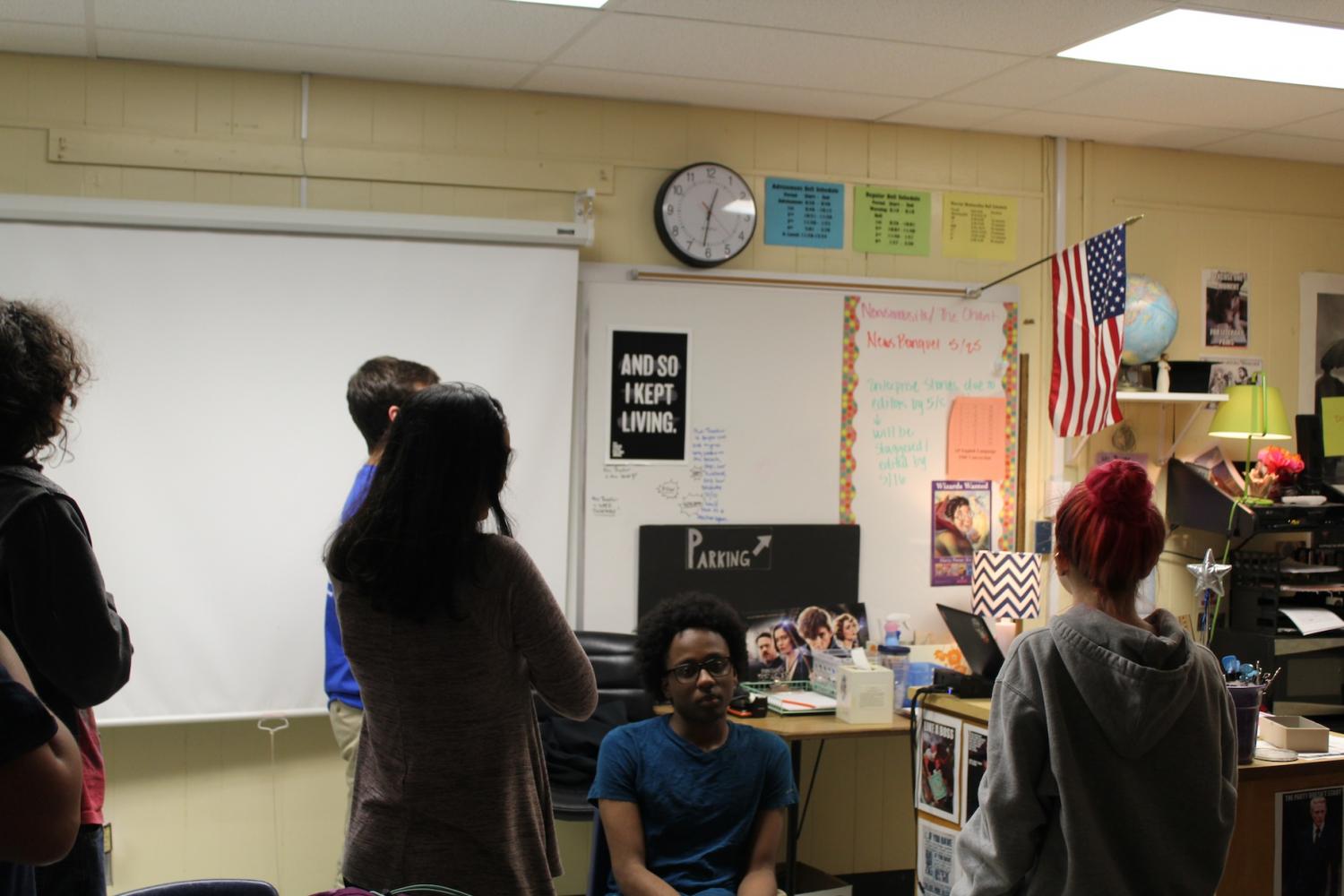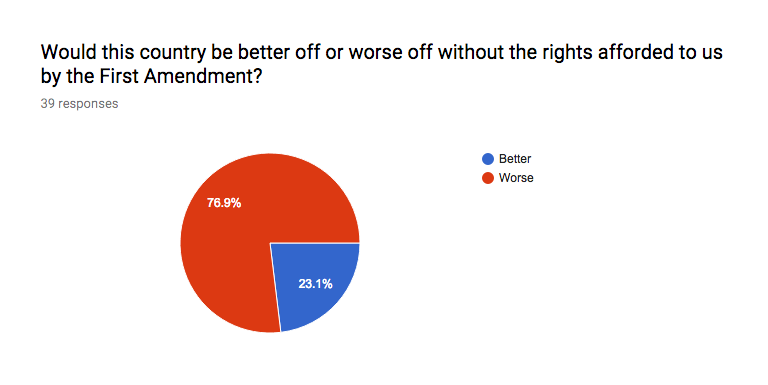Your donation will support the student journalists of North Cobb High School. Your contribution will allow us to purchase equipment and cover our annual website hosting costs.
The freedom to speak
May 18, 2017

The first amendment to the US Constitution.
The First Amendment of the United States Constitution serves as an integral foundation to the effective survival and existence of this republic. Without the ability for citizens to speak as they please, without the ability for the media to publish stories in critique of government and public officials, and without the ability for the people to protest when they see injustices without having fears of government silencing them, the United States would not have come close to the status it holds today.
The right to free expression serves an imperative purpose in any democratic society. It saves the people from a constricted Overton window controlled by those in power, which would limit political discourse and effectively disenfranchise the people. Without it, the US might still recognize the practice of slavery and allow only white men voting rights.
“It allows us to perfect the republic we hold today. With every idea in the book considered, we can learn how to make it better each and every day,” senior Patrick Boff said.
Society can trace the idea of a citizen’s right to free speech as far back as Socrates. In his trial for impiety and negatively influencing Athenian youth in 399 BC, he said, “If you offered to let me off this time on condition I am not any longer to speak my mind, I should say to you, ‘Men of Athens, I shall obey the Gods rather than you.’”
In the 1800’s, Charles Bradlaugh, a British member of parliament and political activist, said “Better a thousandfold abuse of speech than a denial of free speech. The abuse dies in a day, but the denial slays the life of the people, and entombs the hope of the race.”
Noam Chomsky, linguistics professor at the Massachusetts Institute of Technology and the author of many books on both world affairs and linguistics, echoes this sentiment, saying, “If you believe in freedom of speech, you believe in freedom of speech for views you don’t like. Goebbels was in favor of freedom of speech for views he liked. So was Stalin. If you’re in favor of freedom of speech, that means you’re in favor of freedom of speech precisely for views you despise.”
Protecting the speech rights of one’s political and intellectual opposition as well as those of one’s brethren has found itself in the media in recent months as well.
Colleges have cancelled speaking events for right wing speakers such as Richard Spencer and Milo Yiannopoulos after protests by students and many argue this as an example of unconstitutional restriction of speech. They say that as the schools canceling, UC Berkeley and Auburn, receive public funding, the cancellations count as government censorship.
In what one could could construe as a response to these cancellations and two lawsuits against state colleges for “attempts to limit students’ free speech,” Representative Buzz Brockway of Lawrenceville introduced a bill to the Georgia House of Representatives that would prevent colleges and universities from limiting free expression on campus.
“If you want to stand on your porch and yell, ‘I hate Donald Trump’, and have no fear of something physically happening to you, to me that’s important,” World History teacher Michael Dillard said.
The Chant conducted an anonymous poll for this piece over the course of a week on what the effect of a loss of the First Amendment would be, and 30 of the 39 respondents answered that the United States would worsen if the First Amendment were repealed.
Despite the wide agreement on the First Amendment’s crucial nature, government sometimes denies citizens the right.
After his wife received a ticket for running a red light, Mats Järlström set out to create a better algorithm for traffic lights. After speaking for years about his work, the Oregon State Board of Examiners for Engineering and Land Surveying fined Järlström $500 for critiquing without a license.
In addition, President Donald Trump has spoken about the desire to “open up our libel laws” in response to pieces against him.
In a speech, Trump said, “So when The New York Times writes a hit piece, which is a total disgrace, or when The Washington Post, which is there for other reasons, writes a hit piece, we can sue them and win money instead of having no chance of winning because they’re totally protected.”
This implies a desire on the current administration’s behalf to gut the ability of our press to objectively critique them, a necessity in democratic society. If successful, this would spell disaster for the state of discourse in America.
Free expression serves as a hallmark of any first world society. Without it, the citizens would have no recourse in attempting to correct the world’s ills. The ability of any man to worship as he pleases, speak how he pleases, and protest as he pleases safeguards us from barbarism, and ensures the values of democracy.

